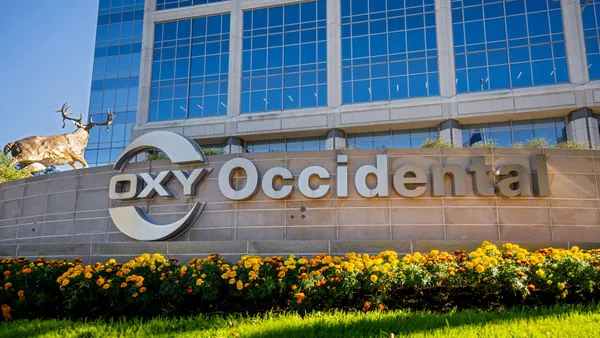Dive Brief:
- The United Nations-backed Net-Zero Insurance Alliance disbanded Thursday, with its work being picked up by a new UN-led group, the Forum for Insurance Transition to Net Zero, the UN Environment Progamme Finance Initiative said last week.
- UNEP said in a release that the FIT’s initial priorities will include advancing insurance metrics and voluntary targets frameworks, developing a transition plan framework for insurers and engaging with corporations on their net-zero plans.
- The NZIA’s disbandment comes after five of its eight founding members left between its inception in 2021 and 2023. The group saw at least seven departures alone in 2023, including German-based Allianz and France-based insurer AXA and reinsurer SCOR, Reuters reported last year.
Dive Insight:
None of the 19 initial FIT participants — composed of global insurers and reinsurers — are domiciled in the U.S. where Republican officials have made NZIA and similar UN-aligned climate groups frequent targets of investigations.
UNEP said the new forum will look to increase the insurance and finance availability for transition projects and “net-zero activities.” UNEP will chair the forum, which will work with insurers, reinsurers and brokers, as well as engage with insurance regulators, net-zero standards-setters and other stakeholders to “advance net-zero insurance thinking and practices globally.”
The FIT will build on the NZIA’s experience, which it called the first group to transform “net-zero insurance from theory to practice,” according to UNEP. The organization said it held monthslong stakeholder conversations on “practical and effective” ways for the insurance industry to support the transition to a net-zero economy, which led to the multistakeholder forum being established with a new set of priorities.
“Through the FIT, UNEP will deepen and strengthen its commitment to work with the global insurance industry and key stakeholders to support the acceleration and scaling up of the transition to a net-zero economy, as part of the solution to the global climate crisis and the vision of a resilient, sustainable, and prosperous future for all,” the release said.
The insurer forum will also receive input from two consultative groups: one composed of global insurance regulators and supervisors and another focused on science, research and civil society. While none of the founding forum participants are headquartered in the U.S., the nation will be represented on both FIT consultative groups.
California State Insurance Commissioner Ricardo Lara, Illinois Department of Insurance Acting Director Ann Gillespie and Washington State Insurance Commissioner Mike Kreidler are among the 16 founding members of Consultative Group of Insurance Regulators and Supervisors.
The global Consultative Group on Science, Research and Civil Society’s has 12 founding members, which includes professors from Harvard Business School and University of California Berkeley School of Law. The CGSRC will also include representatives from a variety of global environmental nonprofits, including Steven Rothstein, the managing director of the Ceres Accelerator for Capital Markets; Carolyn Kousky, associate vice president of economics and policy and Leslie Labruto, managing director of sustainable finance, from the Environmental Defense Fund; Sue Reid, a climate finance advisor to Global Optimism founding partner Christiana Figueres; Reclaim Finance Executive Director Lucie Pinson; Minyoung Shin, a senior strategist of global sustainable finance for The Sunrise Project; and Amandine Favier, head of sustainable finance for the World Wildlife Federation Switzerland.
The forum will also be represented by a global legal team at Freshfields Bruckhaus Deringer, along with two Europe-based special legal advisors. UNEP said the legal team includes experts on sustainability, insurance and finance, as well as antitrust and competition laws.
It is notable that FIT’s legal counsel will have expertise in antitrust and competition law, after a group of 23 Republican attorneys general accused the group of violating antitrust laws through its climate commitments almost a week prior to the high-profile exits.












